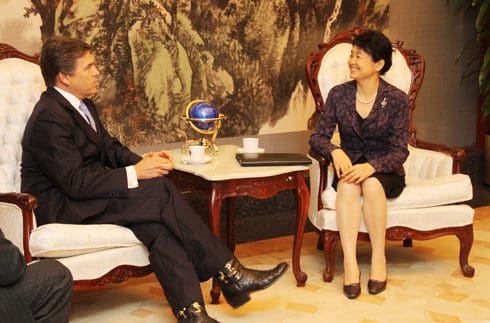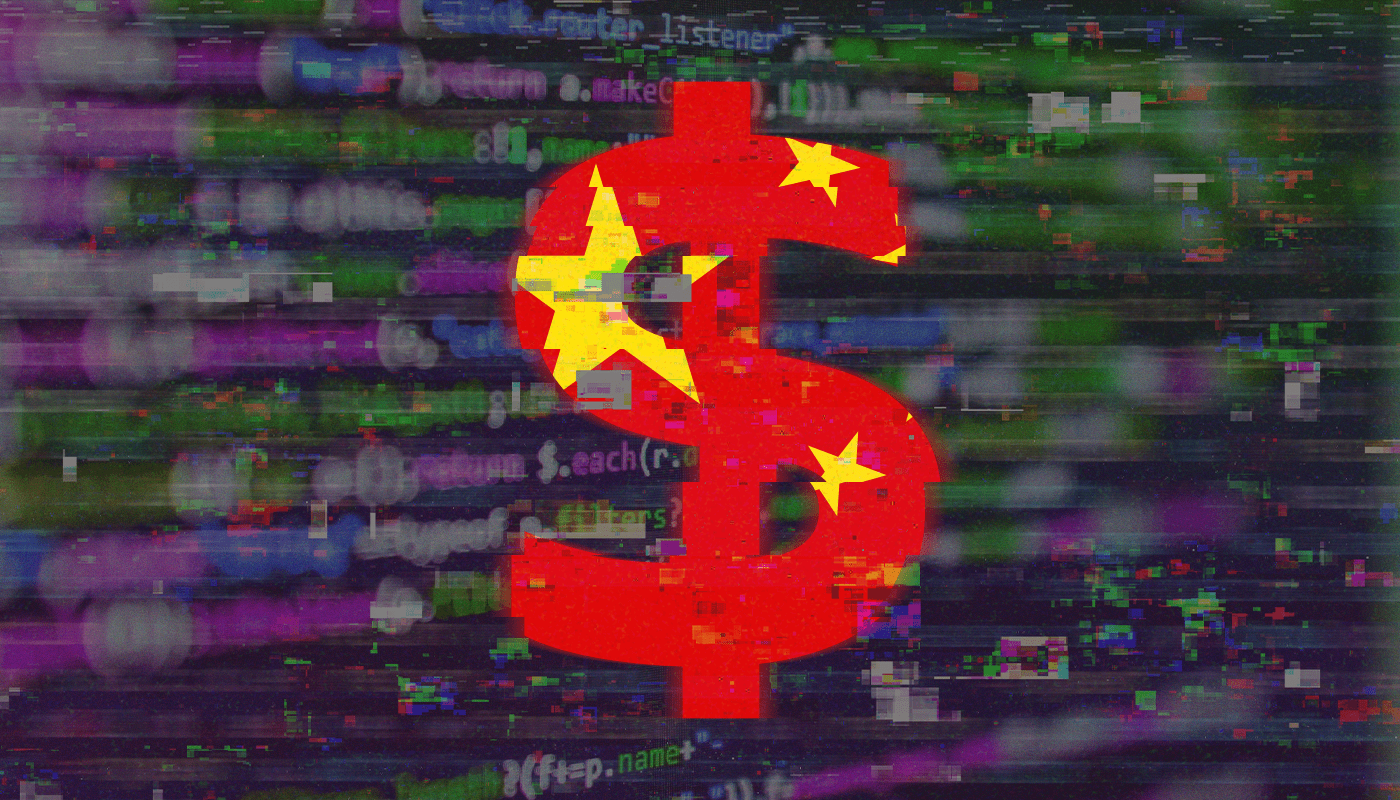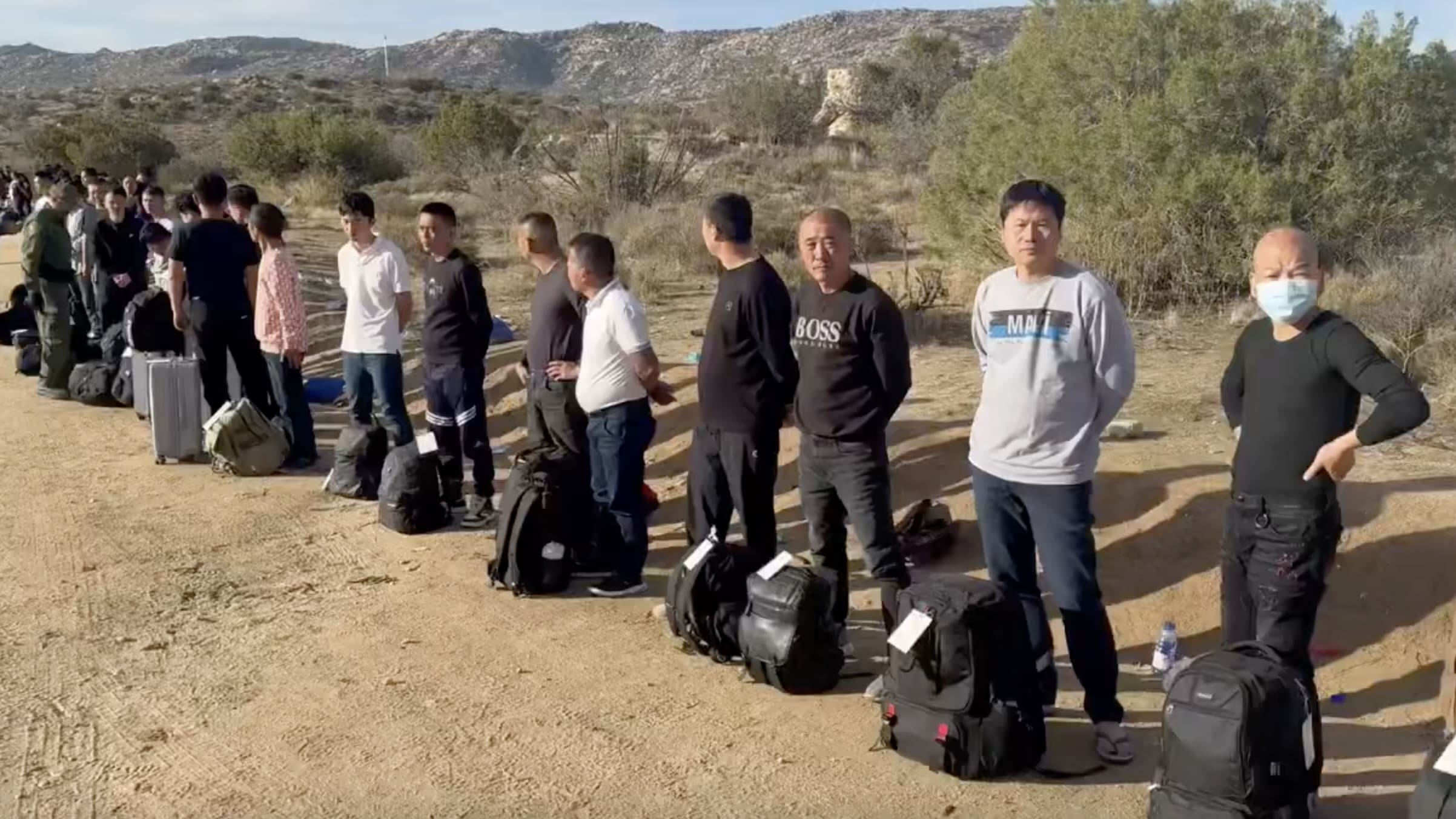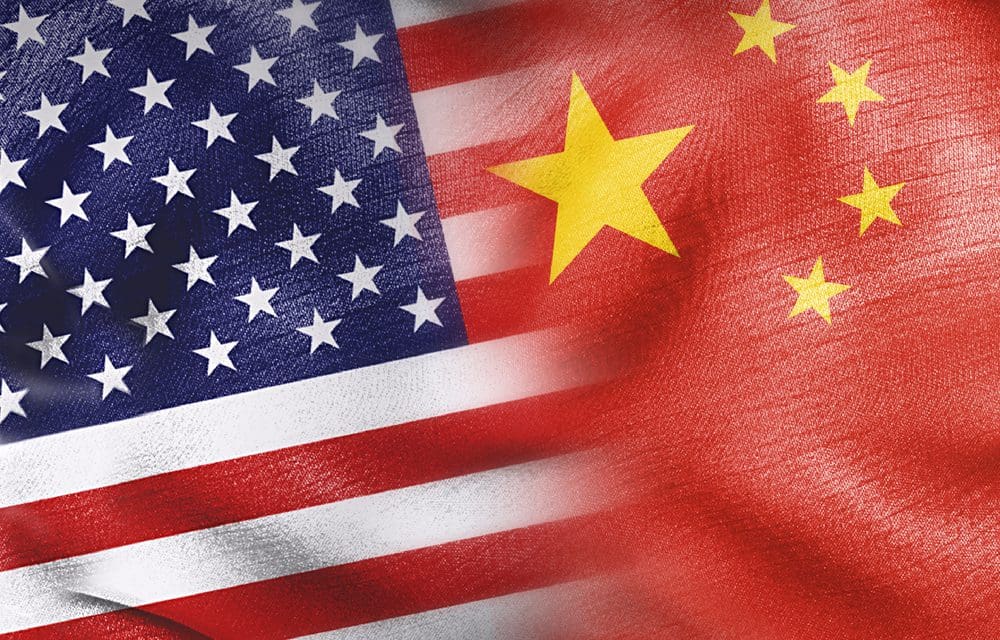In recent investigative reporting, Texas Scorecard has examined the length and breadth of the Chinese Communist Party’s (CCP) infiltration into Texas at multiple levels: education, land, and politics.
It’s through connections to our political network—both at the state and local government level—that they have successfully infiltrated our state’s commerce, posing another threat to our state and national security.
Callback
In our investigation into China’s influence on education, Texas Scorecard exposed how through using the name of an ancient Chinese philosopher, Confucius, the CCP was allowed into our education apparatus. They successfully infiltrated our universities and our K-12 school districts, further corrupting our already anti-citizen education apparatus with CCP money, materials, and their own teachers. In order to maintain their infestation, they’ve now undertaken rebranding efforts.
We have illuminated how the CCP has acquired Texas land in order to conduct surveillance of an American military installation and has access to our food supply, as well as the need for legislative action.
We have also discussed how the CCP targets state and local governments as part of its plan to infiltrate America, its ongoing efforts to push the Texas Legislature to approve their surveillance of Texans, the presence of politically well-connected nonprofits with suspicious ties to the CCP in Texas, and suspicious connections and CCP support of an elected state representative.
Unfortunately, these are not the only areas where the CCP has cast its net in the state of Texas. Over the past decade and beyond, the Chinese government and its corporate partners have made significant inroads in Texas commerce, creating partnerships with Texas companies and establishing a U.S. base of operations for Chinese corporations inside the Lone Star State. This behavior has been marketed as a sign of improving foreign trade relations with China, but the history of these partnerships reveal an age-old truth: Doing business with Chinese Communists is always more dangerous than it appears.
Many claim that suspicions surrounding foreign investments coming from China are unfounded. After all, isn’t it reasonable to assume that these companies are only seeking to make sound financial investments?
The answer is no. As subsequent articles will show, many of these companies have deep ties to the Chinese central government and the CCP. To assume that the CCP will not exploit those relationships for political gain is naive. Even China Daily, a CCP propaganda arm, admits Chinese state bodies like the State Administration of Foreign Exchanges (SAFE) and the State-owned Assets Supervision and Administration Commission (SASAC) have become increasingly involved in these foreign deals. SAFE “has… been active overseas through its investment arm, Safe Capital, which owns at least $300 billion in overseas assets.” Meanwhile, the Assets Supervision and Administration Commission has been given at least $10 billion to support foreign investments just like these. According to the deputy director of China’s Ministry of Commerce department of policy research, “‘Chinese outbound companies need to strengthen their soft power’ to get assimilated into foreign markets and make themselves acceptable to local people.”
The suspicion surrounding these deals isn’t rooted in fear or xenophobia – it is the logical result of taking the Chinese Communist Party at its word.
Friendly Relations
Apparently, to get at our commerce, they took the inter-connected superhighway of our state’s political system. In 2010, then-Texas Governor Rick Perry (R) met with then-Chinese Consul General Gao Yanping at the Chinese Consulate in Houston, where they discussed increasing cooperation between Texas and China.

Source: Consulate General of China in Houston
Just a few years later, in 2014, Perry traveled to China and signed a Memorandum of Cooperation alongside the Chinese Assistant Minister of Commerce, Zhang Xiangchen. This agreement established a Joint Working Group of Trade and Investment between China and Texas, with the goal of “expand[ing] cooperation with Texas in business, trade, investment, tourism, education, research and development.” Specifically, these agreements were signed with the Chinese cities of Tianjin, Fujian, Shandong, Jiangsu and Sichuan.
These friendly relations continued even after Perry was no longer governor. In 2017, a Texas Economic Development Mission, led by Texas Secretary of State Rolando Pablos and supported by current Texas Governor Greg Abbott (R), traveled to China to meet with Chinese companies and government officials. “Private sector leaders” were said to have been a part of the Texas delegation.
The stated goal of this trip was to further increase Chinese investment in Texas. In the words of Secretary Pablos: “As our second largest import source country and with more than 150 Chinese companies operating in Texas, China is a growing partner in elevating the Lone Star State’s continued economic prosperity. I would like to thank Governor Abbott for his vision in attracting foreign investment to Texas and for fomenting a strong relationship with China.”
According to Pablos’ 2017 press release, foreign investment from China is not a recent development. Twenty-seven Chinese projects had invested $1.6 billion in Texas since 2003. San Antonio and Houston ranked as the 7th and 8th highest U.S. cities for Chinese investment, respectively. Furthermore, Texas established Memoranda of Understanding (MOUs) with Chinese provincial governments such as the Fujian Department of Commerce, Fujian Province, Shandong Province, Jiangsu Province, and the Tianjin Municipal Government in the prior ten years.
Coming to a City Near You
These relationships don’t stop at the state level, however. The connections between various Texas cities and their Chinese counterparts are equally important. Various American cities have “sister cities” in countries around the world. One of these countries just so happens to be China. Houston, for example, has a sister-city relationship with Shenzhen. “The sister cities concept was launched in 1956 when President Dwight D. Eisenhower proposed linking American cities with cities in other countries to exchange people, ideas and cultures,” the City of Houston’s website states. “In Houston, the official city-to-city relationships are supported by the Mayor’s Office and volunteer associations to promote people-to-people diplomacy and encourage citizens to develop mutual trust and understanding through commercial, cultural, educational, and humanitarian exchanges and interactions.”
However, the city-to-city relationships don’t stop there. As recently as 2019, in cities like Houston and Austin, MOUs were signed to deepen cooperation with Chinese counterparts. Austin signed such an agreement with the Chinese city of Changsha to “facilitate innovation and investment traffic between the two cities.” In Houston, Changsha signed an agreement with the US-China Innovation Alliance (UCIA). Reportedly now defunct, UCIA was an American organization that facilitated relationships between Chinese and American businesses. This particular agreement established a six-month plan to “build financial channels for both American and Chinese companies” to invest in each other’s markets, to build innovation in both cities with the help of the UCIA, and to “build cooperation in healthcare.”
At least two members of UCIA are now associated with the George H.W. Bush Foundation for U.S.-China Relations.
China General Chamber of Commerce
One major player in this commerce field is the China General Chamber of Commerce (CGCC). This organization is branded as a non-governmental, non-partisan organization which works to increase cooperation between U.S. and Chinese businesses. According to its website, CGCC “has been recognized as the largest and most impactful non-profit organization representing Chinese enterprises in the U.S.”
According to a piece published by Newsweek, the CGCC is tied to the Chinese Communist Party and more specifically, its United Front system. According to the Australian Strategic Policy Institute, the United Front Work Department is a coalition of individuals and groups which work to advance the CCP’s agenda in countries around the world. Chinese President Xi Jinping has been heavily involved in the United Front for years. In fact, according to a Google Translation of a report on the 2015 United Front conference, President Xi said the following:
The united front is the political advantage and strategic policy of the Chinese Communist Party to unite people’s hearts and strength. An important magic weapon for the success of the reform cause is to strengthen the party’s class foundation, expand the party’s mass base, and consolidate the party’s ruling position, and it is an important magic weapon for building a moderately prosperous society in an all-round way, accelerating socialist modernization, and realizing the Chinese dream of the great rejuvenation of the Chinese nation.
The work of the United Front continues to the present day, and now it is more important than ever before. According to state sanctioned propaganda on the United Front, the next phase of its influence relies on private companies and foreign businesses, “strengthen[ing] the bonds between the [CCP] and non-Party intellectuals, people engaged in the nonpublic economy.”
CGCC denied any connection to the United Front, but its value to the CCP is fairly obvious. In a speech to China-friendly organizations hosted by the Washington state government in Seattle, President Xi recognized the China General Chamber of Commerce as one of many groups which “have made untiring efforts over the years to promote friendly relations and cooperation between the two countries.”
Houston, We Have a Problem
The China General Chamber of Commerce has branches all over the United States. One of those branches is conveniently located in Houston, Texas; where one of the Chinese General Consulates was located before being shut down by the U.S. Government.
The chairman of CGCC-Houston, Li Shaolin, also happens to be the President of Petrochina America Inc. Petrochina is one of the largest oil and gas companies in China, and is also a subsidiary of the China Natural Petroleum Corporation (CNPC), one of the largest state-owned enterprises in China. At the annual China General Chamber of Commerce-Houston gala in 2017, Shaolin bragged that “Since 2015, [CGCC-Houston] [has] acquired 81 members, and CGCC-Houston has now become the commercial service organization for Chinese and US companies in Houston and eight other states in the southern US.” This particular gala, the second of its kind, was attended by more than 280 Chinese and American business executives, and featured a speech by then-Chinese Consul General Li Qiangmin.
According to a database on the CGCC-USA website, there are at least 117 Chinese companies, or American companies with Chinese ties, which are located in Texas or have invested in the state. 38 are in the manufacturing industry, including Wanhua USA, Jinhuan Construction Group, and Master Valve USA). 30 are in “Professional, Scientific, or Technical Service,” including Huawei Technologies, USA, BOE Technology Group, and Nguyen and Chen LLP.
On this particular list is the law firm Locke Lord LLP, where the Democrat mayor of Dallas (and former state representative), Eric Johnson, is a partner.
As previously reported, Johnson visited China when he was a state representative in 2016. He was also visited this year by the Chinese Ambassador to the U.S. Qin Gang.
Texas Scorecard made repeated offers for Mayor Johnson to comment. His office replied this was a question for Locke Lord and referred us to them. We sent an inquiry to David Taylor, chair of Locke Lord, offering an opportunity to comment. He did not respond to us before our deadline.
The breakdown of the remaining 117 Chinese companies, or American companies with Chinese ties in Texas, on the China General Chamber of Commerce-USA database, are as follows. 15 are in “Mining, Quarrying, Oil, and Gas Extraction,” including China Oilfield Services Limited, Wison USA, and Amerril Energy. There are nine in “Transportation and Warehousing,” including COSCO Shipping (North America), six in Finance, including Starr Strategic Holdings and Credit Suisse.
According to the database, there are also such companies in food service (including Aimbridge Hospitality) and public administration (including JAMS) present in Texas. Citizens may view the entire database for further information.
The business relationships we have identified in this piece are not uncommon, and many companies are working to facilitate such partnerships. One of those is the China International Intellectech Corporation.
China International Intellectech Corporation
CIIC for short, this company is headquartered in Beijing and “directly managed by the State-owned Assets Supervision and Administration Commission of the State Council.” Their mission is “to be China’s preferred human solutions provider.”
CIIC has become involved with immigration consulting. One notable partnership they made in the last decade involved a law firm based in Austin, Azarmehr Law Group (ALG). In 2013, CIIC signed an MOU with Azarmehr Law Group and a consulting firm based in Hong Kong, VV Consulting. The goal of this agreement was to bring foreign investors from China to work in the United States through a visa program called EB-5. The program provides foreign investors with a Green Card as long as they invest a certain amount of money in American businesses and “plan to create or preserve 10 permanent full-time jobs for qualified U.S. workers.” It was widely reported that one of the top states to receive investments through the EB-5 visa program is Texas. In fact, “studies showed that EB-5 investments in Texas totaled $818.67 million and created more than 14,300 jobs in 2014-2015 alone.” Additionally, in May 2020 Texas had approved 68 “EB-5 regional centers.”
Interestingly enough, according to The Seattle Times, “investors from mainland China dominate the contest for EB-5 visas… [in 2015], 86 percent of approved petitions came from those born there.” It was widely reported that the 2013 agreement signed between China International Intellectech Corporation (CIIC), Austin-based Azarmehr Law Group, and Hong Kong-based VV Consulting would solidify “ALG’s unique position in the Central Texas area to offer a complete range of EB-5 services to firms in the Austin-San Antonio corridor, further confirming the area’s role on an international stage.” “Chinese investors make up the largest group of EB-5 applicants, and coupled with the rapid growth in our firm’s EB-5 practice, we needed to team up with a well-established, reputable state-owned enterprise firm in China to better serve our Chinese clients,” stated ALG founder Mehron Azahrmehr.
Unfortunately, agreements like these indicate that foreign investment in American companies, or the establishment of U.S. subsidiaries of foreign companies on U.S. soil, is on the rise. The following example will illustrate how these relationships unfold.
COSCO Shipping
COSCO, which stands for China Ocean Shipping Company, is owned by the Chinese government. COSCO Shipping Lines Co. has numerous subsidiaries and branches, which make its investments and activities difficult to track.
One of these subsidiaries is located in Houston, Texas. Unfortunately, it’s not the only one.
According to a China Daily story published in 2017, “sixteen Chinese firms presently operate 18 subsidiaries in the Houston area, including COSCO, CNOOC, Honghua Group and TPCO.”
As further publications will show, there are more. The Chinese Communist Party and its affiliates are clearly not finished with their expedition to infiltrate and compromise institutions inside the United States, and Texas remains one of their primary targets.
In the next installment of this series, Texas Scorecard will explore the various industries in which the CCP has tried to influence Texas commerce, and how they have succeeded, beginning with one of the most crucial sectors in American life: energy.
No ads. No paywalls. No government grants. No corporate masters.
Just real news for real Texans.
Support Texas Scorecard to keep it that way!





